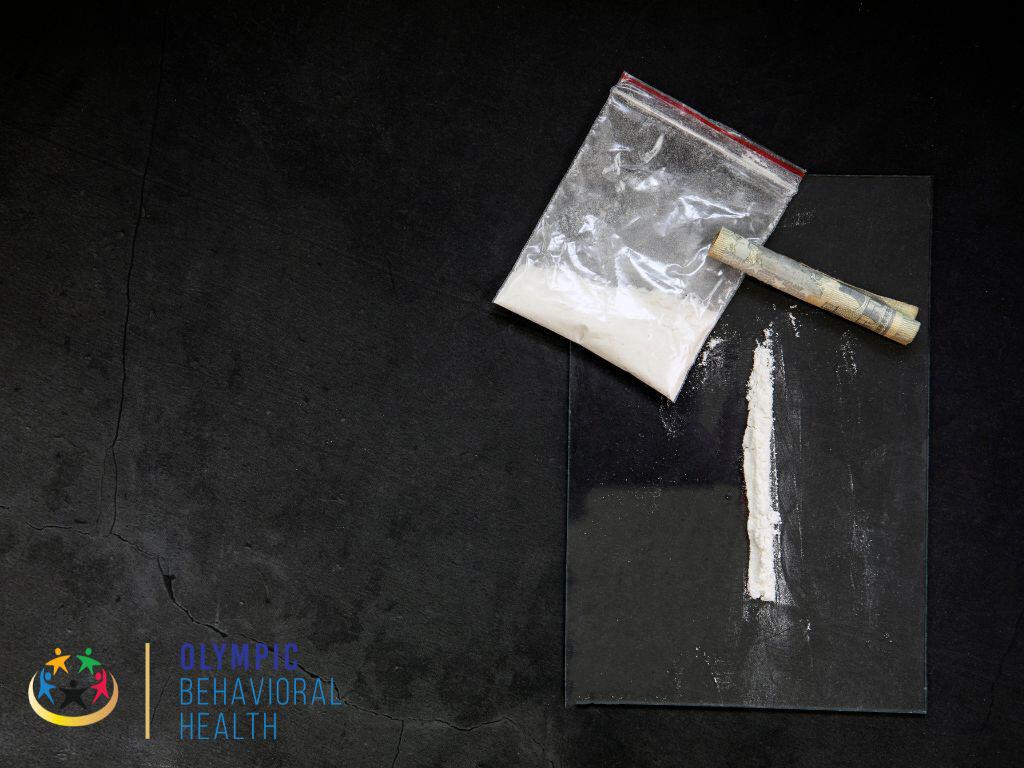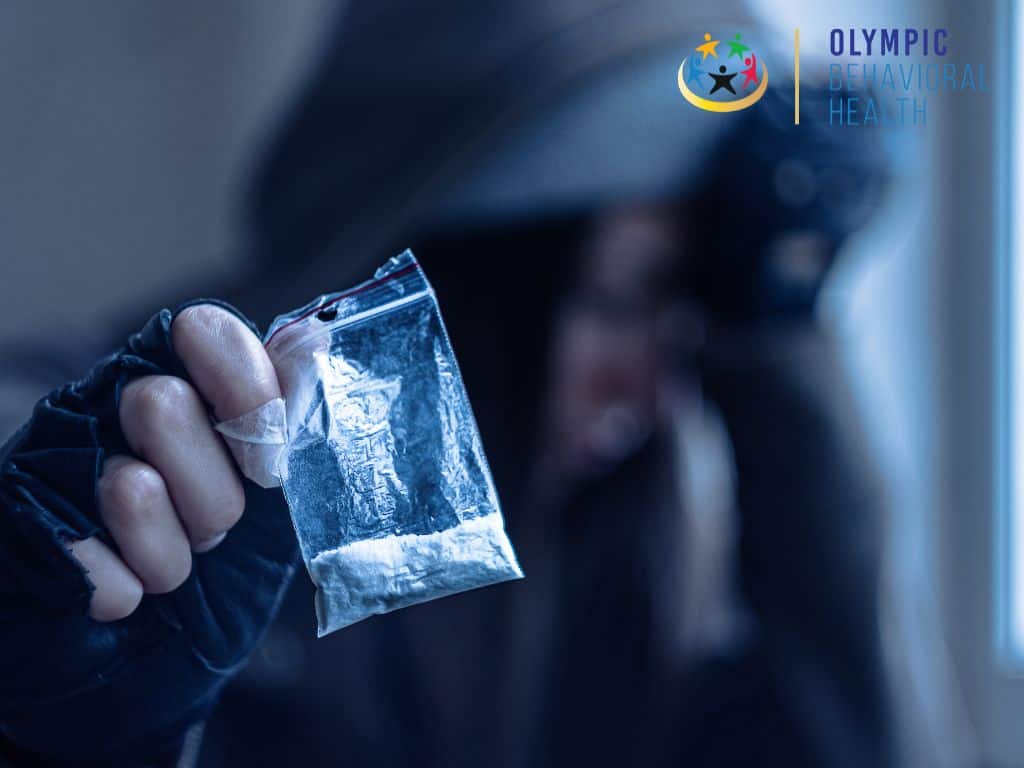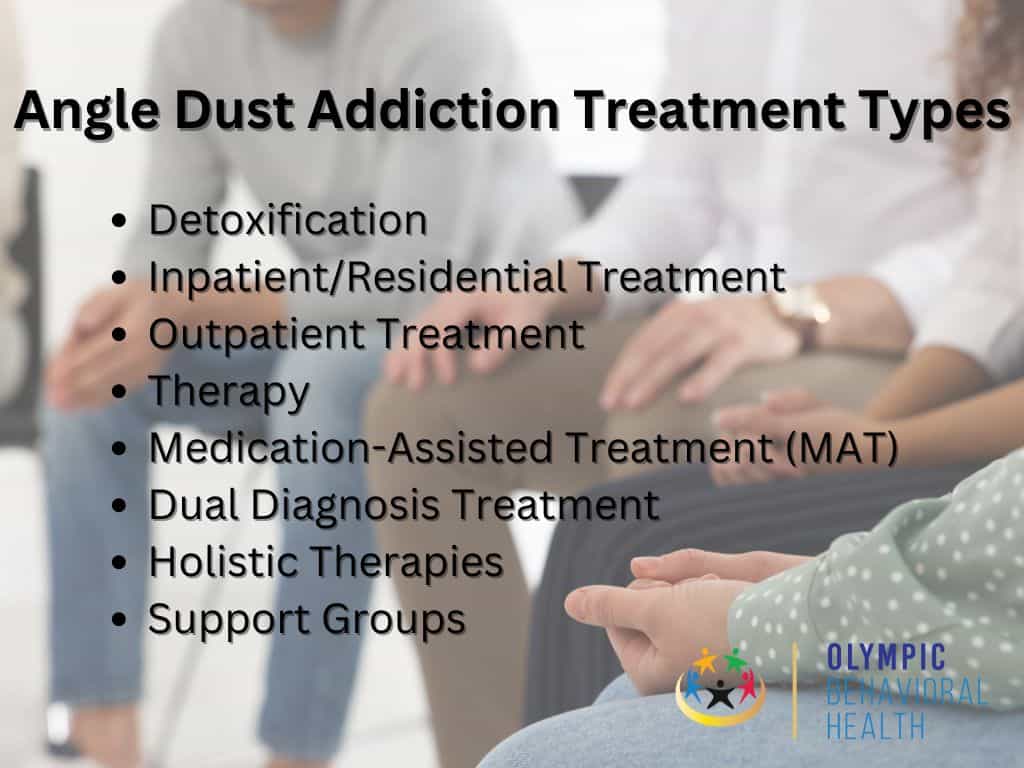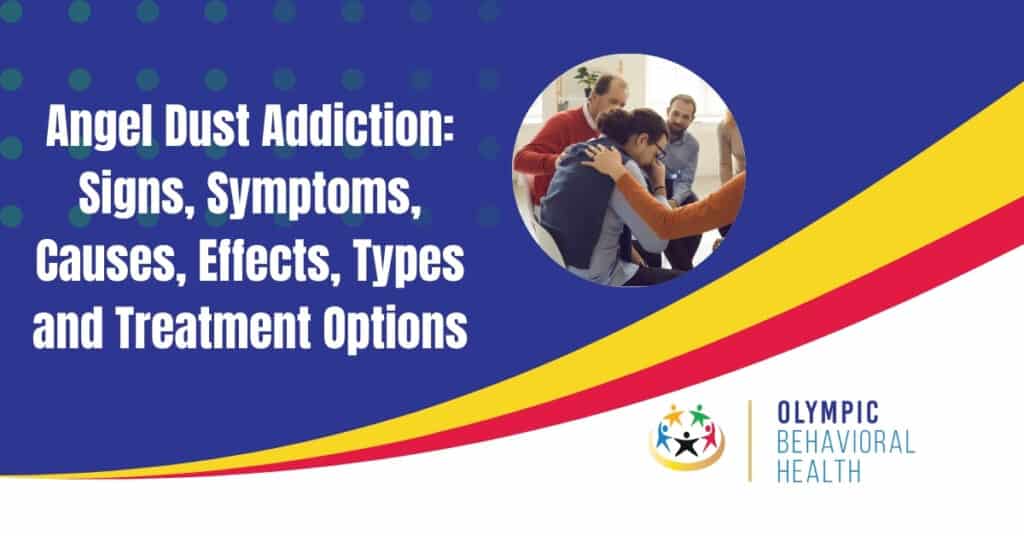Angel dust, also known as PCP (phencyclidine), is a dangerous hallucinogenic drug. It warps a user’s perception of reality, leading to distorted sight, sound, and a sense of detachment. This can cause unpredictable and sometimes violent behavior. Highly addictive, PCP wreaks havoc on both physical and mental health. According to the National Survey on Drug Use and Health, an estimated 6.3 million people aged 12 or older in the United States reported using PCP at least once in their lifetime. This translates to roughly 2.4% of the population in this age group.
The signs of angel dust addiction can be sneaky. Look for changes in behavior like wild mood swings, withdrawal from social activities, and increased aggression. Someone struggling with addiction might neglect their appearance and experience physical withdrawal symptoms like headaches or nausea when they stop using.
A complex interplay of factors causes addiction to angel dust. Genetics might make some individuals more susceptible. Environmental influences like exposure to drug use or using PCP to cope with trauma can also play a role. PCP’s powerful effect on brain chemistry, particularly its impact on dopamine and other mood-regulating chemicals, is another key piece of the puzzle.
Overcoming angel dust addiction requires professional help. Treatment typically involves detoxification to safely eliminate the drug from the body, followed by therapy (individual and group), medication-assisted treatment (when needed), and support groups. Addressing underlying mental health issues and developing relapse prevention strategies are crucial for long-term recovery.
Relapse is a risk with any addiction, including angel dust. However, there are ways to minimize the chances. Continuing therapy, joining a support group, identifying and avoiding triggers, prioritizing self-care, and having a relapse prevention plan are all essential tools for staying sober and building a healthier life.

What is Angel Dust?
Angel dust also called Phenylcyclohexyl Piperidine (PCP) shortened to Phencyclidine. Angel dust was created in the 1950s as an anesthetic agent. However, it was banned for human use due to patients becoming agitated, delusional, and irrational after use.
Today though, angel dust is popular as an illicit drug used recreationally for its hallucinogenic effects. It is typically sold as a white powder with a bitter taste. The Drug Enforcement Agency (DEA) classifies angel dust as a Schedule II under the Controlled Substances Act. This means it has a high risk of abuse.
It can be snorted directly, injected, or smoked with tobacco and cocaine. Angel dust addiction effects are the reasons why people also refer to it as angel dust. Angel dust is also called ozone, amp, animal tranq, rocket fuel, etc.
Is Angel Dust Addictive?
Yes, angel dust is addictive. It all starts with someone experimenting with PCP. The initial effects can be appealing, leading them to want to experience them again and again. This is where things get tricky.
Just like many other drugs, the body builds a tolerance to PCP. What this means is that over time, you need to take more and more of the drug to get the same high. This cycle of needing more and more fuels addiction. On top of that, the body adapts to having PCP in the system, making it difficult to quit.
If you or someone you know is struggling with angel dust addiction, it’s important to seek help. Effective treatment options are available, and you don’t have to go through this alone. Reach out to a healthcare professional or addiction specialist for support.

What are the Signs of an Angel Dust Addiction?
Angel dust addiction can wreak havoc on a person’s life, impacting their physical, mental, and social well-being. The signs of addiction can vary depending on the individual, but there are some common red flags to watch out for. Here’s what to be aware of:
- Need for More (Tolerance): This is a classic sign of addiction. Someone struggling with PCP addiction might need to take increasingly larger doses to get the same high they used to.
- Withdrawal Symptoms: Stopping PCP after regular use can lead to withdrawal symptoms like headaches, nausea, vomiting, and sweating.
- Using Despite the Consequences: This is a big one. Even if angel dust is causing problems with finances, relationships, or the law, someone with an addiction might keep using it.
- Social Withdrawal: PCP addiction can lead to social isolation. People might lose interest in activities and friends, prioritizing drug use over everything else.
- Mood Swings: Angel dust is notorious for causing wild mood swings. Someone struggling with addiction might experience depression, anxiety, and irritability. Aggressive behavior is also a common symptom.
- Thinking Trouble: Long-term PCP use can cause problems with thinking and memory. Confusion, difficulty concentrating, and memory loss are all potential signs of addiction.
- Letting Go of Self-Care: Basic hygiene and taking care of oneself might fall by the wayside with PCP addiction. Their appearance and living environment could become neglected.
- Physical Symptoms: Look out for physical signs like tremors, seizures, and muscle rigidity. These can all be indicators of PCP use and addiction.
- Continued Use Despite Health Risks: Perhaps the most concerning sign is someone with a PCP addiction will keep using the drug even when it’s damaging their physical and mental health.
What causes an Angel Dust Addiction?
Angel dust is a powerful drug that can grip users both physically and mentally. Like with any other form of substance use disorder, angel dust addiction is a complex issue. It is a complex mix of biological, environmental, and social factors.
- Brain Chemistry: PCP messes with the brain’s delicate balance of chemicals like dopamine, serotonin, and norepinephrine. These chemicals control mood, motivation, and pleasure. PCP cranks them up, creating an intense high that’s incredibly attractive.
- Tolerance: The body gets used to PCP over time, needing more and more to get the same effect. This is called tolerance. As users chase that initial high, they end up in a cycle of increasing drug use, which fuels the addiction.
- Life’s Challenges and Influences: Our environment and social circles can play a big role. People surrounded by drug use or with family/friends who use are more at risk. Similarly, those struggling with trauma or stress might turn to PCP to cope, leading to dependence. Research by S. Simmons, et al. published in Volume 25, Issue 4 of the Child and Adolescent Psychiatric Clinics of North America explains that addiction can result in trauma and vice versa.
- The Genes Factor: Genetics can also play a part. Some people are simply more predisposed to addiction than others, making them more vulnerable to PCP’s grip. While pinpointing the exact cause is complex, research suggests genetics and how genes are expressed (epigenetics) play a role in PCP addiction risk, according to the National Institute on Drug Abuse. A research paper authored by P.C. Contreras, et al. in 1987, highlights PCP’s influence on the central nervous system, highlighting its interaction with various receptors (nicotinic, mu-opioid, muscarinic, sigma) and its impact on the release of dopamine, norepinephrine, and serotonin.

What Treatment Types Can Be Used for an Angel Dust Addiction?
Overcoming angel dust addiction is possible with the right treatment plan. Here’s a look at some common approaches:
- Detoxification: This medically supervised process helps your body safely eliminate PCP from your system and manage withdrawal symptoms.
- Inpatient/Residential Treatment: Living at a treatment facility provides intensive support, therapy, and structure to help you focus on recovery in a safe environment.
- Outpatient Treatment: This option allows you to live at home while attending regular therapy sessions, group support meetings, and other addiction recovery programs.
- Therapy: Individual and group therapy can help you address the underlying causes of your addiction, develop coping mechanisms, and prevent relapse.
- Medication-Assisted Treatment (MAT): Certain medications, combined with therapy, can help manage cravings and withdrawal symptoms, making recovery more manageable.
- Dual Diagnosis Treatment: If you have a co-occurring mental health condition like depression or anxiety, this specialized treatment addresses both issues simultaneously.
- Holistic Therapies: In addition to traditional treatment, some programs incorporate holistic therapies like yoga, meditation, and acupuncture to promote overall well-being.
- Support Groups: Connecting with others who understand the challenges of addiction can provide encouragement, motivation, and a sense of community.
Remember, the best treatment approach is individualized. A healthcare professional or addiction specialist can assess your needs and recommend the most suitable treatment plan for you.
How do you prevent a relapse from an Angel Dust Addiction?
Relapse is a possibility with any addiction, but there are steps you can take to significantly reduce the risk with angel dust. Here’s how:
- Seek Professional Help: Treatment for angel dust addiction is crucial. It equips you with the tools and strategies to manage cravings, understand your triggers, and build a strong support system.
- Continue Therapy: Therapy is a cornerstone of relapse prevention. It helps you address the underlying reasons for your addiction, develop coping mechanisms for stress and difficult emotions, and learn to build healthy relationships.
- Join a Support Group: Surrounding yourself with others who understand the challenges of addiction can be incredibly powerful. Support groups provide a safe space to share experiences, find encouragement, and stay accountable on your recovery journey.
- Identify Your Triggers: Certain people, places, or situations can increase your cravings. Recognizing these triggers allows you to develop strategies to avoid them or healthily cope with them.
- Practice Self-Care: Taking care of yourself physically and emotionally is essential for preventing relapse. Prioritize good sleep, healthy eating, exercise, and activities you enjoy. These can all contribute to a sense of well-being and reduce your vulnerability to cravings.
- Develop a Relapse Prevention Plan: Work with your therapist to create a personalized plan for handling cravings and potential triggers. This might include coping mechanisms, who to contact for support and healthy activities to distract yourself.
Benefits of Treatment
Angel dust addiction treatment isn’t just about stopping drug use; it’s about reclaiming your life. Here’s what you can gain through treatment:
- Improved Physical Health: PCP use can take a toll on your body. Treatment allows you to focus on your health and well-being, leading to improved physical functioning.
- Enhanced Mental Health: Addiction often co-occurs with mental health issues. Treatment can address underlying conditions like depression or anxiety, leading to better emotional stability.
- Stronger Relationships: Addiction can strain relationships. Treatment helps you rebuild trust and develop healthier communication skills, leading to stronger connections with loved ones.
- Increased Productivity: Addiction can significantly impact your work or school performance. Recovery allows you to regain focus, improve your performance, and achieve your goals.
- Overall Well-Being: Treatment empowers you to take control of your life, improve your self-esteem, and experience a greater sense of purpose and fulfillment.
Remember, with the right support and the commitment to recovery, you can overcome angel dust addiction and build a healthier, happier life.
Can medications be used to treat PCP addiction?
While there’s no medication specifically for PCP addiction, they can play a supportive role. Medications might be used to manage withdrawal symptoms when someone stops using PCP. Additionally, if there are co-occurring mental health conditions like anxiety or depression, medications can help manage those specific issues. Therapy remains the primary focus of treatment, helping you address the root causes of addiction and develop coping mechanisms.
Can nutritional therapy be used to treat PCP addiction?
Nutritional therapy isn’t a standalone treatment, but it can be a valuable addition to your recovery journey. Addiction can take a toll on your physical health, so maintaining good nutrition is essential. A registered dietitian or nutritionist can create a personalized plan to address deficiencies and promote healthy eating habits. This can improve your energy levels, mood, and overall well-being, indirectly supporting your recovery efforts.
Seeking Help
Olympic Behavioral Health is an excellent rehab center for my angel dust addiction. They have superior personnel, and excellent facilities for me that can help with my angel dust addiction. They understand that angel dust addiction is chronic disease with a multifactorial cause and are interesting in helping you overcome the problems associated with it. So I will do well to reach out to them for help.

Share This Post



